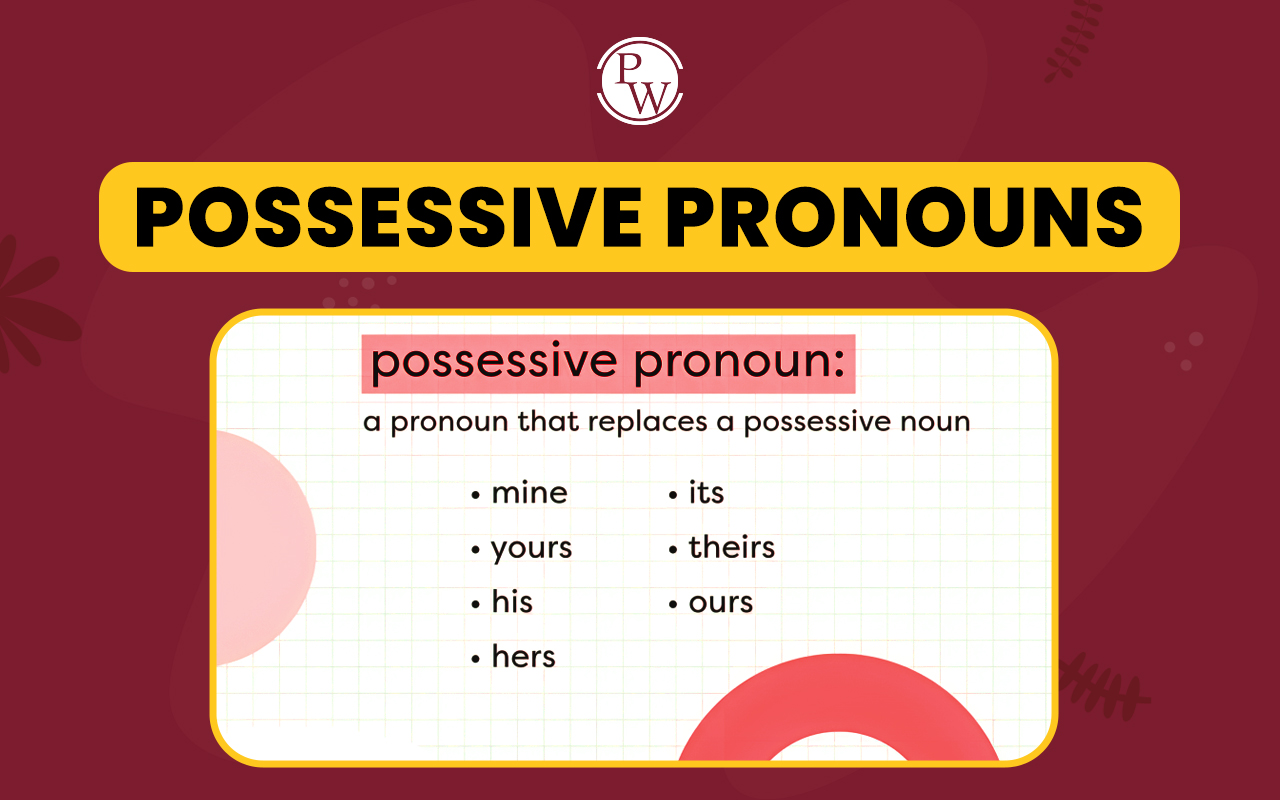| Preposition | Verb | Compound Noun |
|---|---|---|
| Over | Take | Overtake |
| Under | Stand | Understand |
| Out | Run | Outrun |
| In | Scribe | Inscribe |
| Over | See | Oversee |

Compound Nouns: Compound nouns are an essential part of English grammar. They are formed by combining two or more words to create a new noun with a specific meaning. These words can come from various parts of speech, such as nouns, verbs, adjectives, or even prepositions. Understanding compound nouns is crucial for mastering English language use, as they are commonly used in both spoken and written communication.
What is a Compound Noun ?
A compound noun is a noun that is formed by combining two or more words to create a new word with a unique and specific meaning. These combined words function as a single unit and represent a distinct concept that may not be obvious just from the meanings of the individual words. Compound nouns make language more precise by condensing ideas into concise terms. Let's understand the meaning of Compound Nouns better with the examples below:- T oothbrush : A tool used for cleaning teeth. The words tooth and brush come together to create a single object.
- Notebook : A book used for writing notes. It combines note (what you write) and book (where you write it) to mean a single item.
- Sunflower : A type of flower that resembles the sun. The words sun and flower merge to describe a specific flower.
- Post office : A place where mail is collected and distributed. Post (relating to mail) and office (a workplace) come together to refer to the specific building.
- Mother-in-law : The mother of one’s spouse. It combines mother and in-law to define a family relationship.
| Related Articles | |
| Reflexive Pronouns | Possessive Pronouns |
| Relative Pronouns | Indefinite Pronouns |
| Object Pronouns | Demonstrative Pronouns |
Types of Compound Nouns
Compound nouns are nouns formed by combining two or more words to create a single unit that expresses a specific concept or object. These nouns can be written in three main formats: closed (solid), open (spaced), or hyphenated. Here, we will learn all three different types of compound nouns in brief:1. Closed or Solid Compound Nouns
Closed or solid compound nouns are formed by merging two words without any spaces or hyphens. These words combine seamlessly to create a new noun with its own meaning. Examples :- Notebook (a book for writing notes)
- Toothpaste (a paste used for cleaning teeth)
- Keyboard (an input device used for typing)
- Haircut (a style or process of cutting hair)
- Footprint (the impression left by a foot)
2. Spaced or Open Compound Nouns
Spaced or open compound nouns consist of two or more words joined by spaces, but they still function as a single noun. Examples :- Coffee table (a low table usually placed in front of a sofa)
- Swimming pool (a pool designed for swimming)
- Police station (a building where police work)
- Ice cream (a frozen dairy dessert)
- Parking lot (a place designated for parking vehicles)
3. Hyphenated Compound Nouns
Hyphenated compound nouns use hyphens to connect the words, signifying that they work together as one noun. This type often helps clarify the relationship between the words. Examples :- Mother-in-law (the mother of one’s spouse)
- Editor-in-chief (the head editor of a publication)
- Six-pack (a set of six items, commonly referring to packaged drinks)
- Passer-by (a person who happens to be going past)
- Self-esteem (confidence in one’s worth or abilities)
Compound Noun Rules
Forming plurals for compound nouns can be tricky, as the rules vary based on their structure. Here are the main rules for making compound nouns plural, with examples:1. When the Compound Noun Is Singular or a Single Word
For compound nouns written as a single word, add an s to the end to make them plural. Examples :- Underline becomes underlines ("The document has several underlines.")
- Hotspot becomes hotspots ("The city has many Wi-Fi hotspots.")
- Notebook becomes notebooks ("She purchased three notebooks for school.")
2. When the Compound Noun Is Hyphenated or Separated
For compound nouns that are hyphenated or spaced, add an s to the main or most meaningful word to form the plural. Examples :- Mother-in-law becomes mothers-in-law ("They invited their mothers-in-law to the event.")
- Editor-in-chief becomes editors-in-chief ("The company appointed two new editors-in-chief.")
- Passer-by becomes passers-by ("Many passers-by watched the street performance.")
- Attorney general becomes attorneys general ("The conference included several attorneys general.")
3. When Both Parts of the Compound Need to Be Pluralized
Sometimes, both parts of a compound noun may need to be pluralized to make the meaning clear. Examples :- Manservant becomes menservants ("The estate had several menservants.")
- Woman doctor becomes women doctors ("The panel featured several women doctors.")
Forming Compound Nouns with Different Parts of Speech
Compound nouns can be created by combining different parts of speech, such as nouns, verbs, prepositions, and adjectives. These combinations can result in common, proper, or abstract nouns. Below are examples of compound nouns formed using various parts of speech:Noun + Noun
Combining two nouns creates compound words that often describe specific objects or concepts.| Noun | Noun | Compound Noun |
|---|---|---|
| Train | Track | Train track |
| Book | Shelf | Bookshelf |
| Fire | Truck | Firetruck |
| Time | Table | Timetable |
| Beach | Ball | Beach ball |
Noun + Verb
Merging a noun with a verb results in compound nouns that convey actions or processes.| Noun | Verb | Compound Noun |
|---|---|---|
| Heart | Beat | Heartbeat |
| Rain | Drop | Raindrop |
| Time | Save | Timesave |
| Hand | Shake | Handshake |
| Wind | Blow | Windblow |
Noun + Preposition
Pairing a noun with a preposition forms compound nouns often used for roles or relationships.| Noun | Preposition | Compound Noun |
|---|---|---|
| Commander | in-chief | Commander-in-chief |
| Passer | by | Passer-by |
| Father | in-law | Father-in-law |
| Sister | in-law | Sister-in-law |
| Chief | of-staff | Chief-of-staff |
Preposition + Verb
Combining a preposition and a verb creates compound nouns that highlight actions or directions.Verb + Preposition
A verb joined with a preposition generates compound nouns expressing outcomes or movements.| Verb | Preposition | Compound Noun |
|---|---|---|
| Set | Up | Setup |
| Come | Back | Comeback |
| Pass | Out | Passout |
| Break | Through | Breakthrough |
| Look | Out | Lookout |
Preposition + Noun
Combining a preposition with a noun results in compound nouns describing places or states.| Preposition | Noun | Compound Noun |
|---|---|---|
| Over | View | Overview |
| Under | Pass | Underpass |
| Out | Field | Outfield |
| In | Sight | Insight |
| On | Set | Onset |
Adjective + Noun
Combining an adjective with a noun produces compound nouns that convey descriptive meanings. Adjective + Verb
Difference Between Compound and Collective Noun
Here is a comparison between Compound Nouns and Collective Nouns based on their definitions, structure, meaning, and usage. The following table highlights the key differences:
|
Aspect |
Compound Noun |
Collective Noun |
|
Definition |
Two or more words combined to form a new noun. |
A noun that refers to a group considered as a single entity. |
|
Structure |
Made up of two or more words (closed, hyphenated, open). |
Typically a single word. |
|
Meaning |
A specific object, idea, or concept formed from two words. |
Refers to a group or collection of things or people. |
|
Examples |
Notebook, football, toothpaste. |
Team, audience, flock. |
|
Use in Sentences |
Refers to specific things or concepts. |
Refers to groups treated as singular entities. |
|
Plurality |
Can be singular or plural depending on context. |
Usually singular, but can be plural in certain contexts. |
Compound Nouns Practice Questions
Challenge yourself with these fun and practical questions on compound nouns. Sharpen your skills and boost your confidence in using and identifying compound nouns in everyday language.- Identify the compound noun in the following sentence : "The football match was exciting and full of energy."
- Choose the correct plural form : What is the correct plural form of "mother-in-law"?
5. Match the following pairs to create compound nouns:
a) Sun 1) table b) Coffee 2) rise c) Note 3) book 6. True or False : The word "ice cream" is an example of a closed compound noun. 7. Rewrite the sentence using a compound noun : "The teacher told us to clean the board after the class ended." 8. Choose the correct compound noun : a) Sunshine b) Quickly c) Happiness 9. Complete the sentence : Combine the words "sea" and "food" to complete the sentence: "For dinner, we ordered a delicious plate of ________. 10. Identify the type of compound noun: What type of compound noun is "self-esteem"? Answers a) Open b) Hyphenated c) ClosedAnswers:
- Football
| Related Articles | |
| Pronouns | Conjunctions |
| Preposition | Adverbs |
| Adjcetives | Abstract N ouns |
Talk to a counsellorHave doubts? Our support team will be happy to assist you!

Compound Nouns FAQs
How can you identify a compound noun in a sentence?
Compound nouns can be identified by looking for words that work together as a single unit to represent a specific concept or object, such as notebook, ice cream, or mother-in-law.
Do all compound nouns follow the same pluralization rule?
No, pluralization rules differ based on the type of compound noun. Closed nouns like notebooks take a simple s, while in hyphenated forms, the main word is pluralized (e.g., mothers-in-law).
How do you form a compound noun using a preposition?
A preposition combined with a noun or verb can create a compound noun, such as underpass (preposition + noun) or input (preposition + verb).
What is the difference between an open and a closed compound noun?
An open compound noun is written as separate words (e.g., post office), while a closed compound noun is written as one word (e.g., toothbrush).
How can you use compound nouns to make writing more concise?
Compound nouns allow you to express complex ideas in fewer words. For example, instead of saying "a book for notes," you can simply use a notebook.
What is an abstract compound noun?
An abstract compound noun refers to concepts or ideas that cannot be touched or seen, such as self-confidence or well-being, combining words to express intangible qualities.
Check out these Related Articles
Free Learning Resources
PW Books
Notes (Class 10-12)
PW Study Materials
Notes (Class 6-9)
Ncert Solutions
Govt Exams
Class 6th to 12th Online Courses
Govt Job Exams Courses
UPSC Coaching
Defence Exam Coaching
Gate Exam Coaching
Other Exams
Know about Physics Wallah
Physics Wallah is an Indian edtech platform that provides accessible & comprehensive learning experiences to students from Class 6th to postgraduate level. We also provide extensive NCERT solutions, sample paper, NEET, JEE Mains, BITSAT previous year papers & more such resources to students. Physics Wallah also caters to over 3.5 million registered students and over 78 lakh+ Youtube subscribers with 4.8 rating on its app.
We Stand Out because
We provide students with intensive courses with India’s qualified & experienced faculties & mentors. PW strives to make the learning experience comprehensive and accessible for students of all sections of society. We believe in empowering every single student who couldn't dream of a good career in engineering and medical field earlier.
Our Key Focus Areas
Physics Wallah's main focus is to make the learning experience as economical as possible for all students. With our affordable courses like Lakshya, Udaan and Arjuna and many others, we have been able to provide a platform for lakhs of aspirants. From providing Chemistry, Maths, Physics formula to giving e-books of eminent authors like RD Sharma, RS Aggarwal and Lakhmir Singh, PW focuses on every single student's need for preparation.
What Makes Us Different
Physics Wallah strives to develop a comprehensive pedagogical structure for students, where they get a state-of-the-art learning experience with study material and resources. Apart from catering students preparing for JEE Mains and NEET, PW also provides study material for each state board like Uttar Pradesh, Bihar, and others
Copyright © 2026 Physicswallah Limited All rights reserved.




